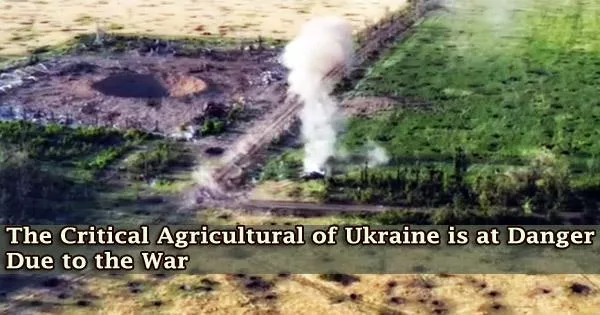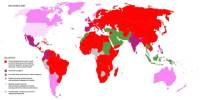The importance of Ukraine’s agriculture sector in the global food supply chain has been underlined by the country’s six-month war, but worries are growing about the risk of a cyberattack on this vital sector.
Grain and other commodity prices were already high before the war, which started on February 24, but Russia’s invasion has brought them to new highs, especially given the fact that both countries play a significant role in global trade.
Furthermore, this has particularly impacted import-dependent nations in the Middle East and North Africa (MENA) area and sub-Saharan Africa, which depends largely on Russian and Ukrainian wheat, and the European Commission has cautioned the bloc’s agri-food sector to brace itself for damage.
With no sign of a resolution to the conflict in Ukraine and as the sector’s critical global relevance grows, experts worry that it may become a target of cyberattacks.
Given its low downtime tolerance, inadequate cyber defenses, and wide-ranging ripple effects of disruption, the agricultural output in Ukraine is “highly vulnerable” to cyberattacks, according to the technology company Cisco Talos Intelligence Group.
On August 24, Ukraine’s Independence Day, the team, which has spent the previous six years actively supporting public and commercial organizations in Ukraine to defend themselves against state-sponsored actors, will be on high alert for any kind of cyberthreats.
“The threats to the Ukrainian agriculture will remain significant, but mostly from the effects of the war,” Joe Marshall, a senior security strategist at Cisco, told Euronews Next.
“While they’ve been able to open the port of Odesa to ship products, they will have significant issues with logistics, labour, and safety that will impact the current and future agriculture production.”
Up to the cyber security challenge
Ukraine, sometimes referred to as the “breadbasket of Europe,” is one of the greatest wheat exporters in the world and relies heavily on agriculture as a source of income, which the UN estimates contributes for 20% of the nation’s GDP.
A cyberattack, like a ransomware attack, has the capability to impact production yields from agriculture victims. An inability to plant, harvest, fertilise, or manage animals in a specific time window can have a detrimental impact on production yields. Globally, this could create a ripple effect, where the food supply chain is threatened with the inability to provide necessary products and services that can further dimmish the global food supply.
Joe Marshall
According to Cisco Talos, the majority of cyber threat actors will be financially motivated ransomware actors and disruptive attacks carried out by state-sponsored advanced persistent threats (APTs), which aim to steal data. Additionally, the dependence of Ukraine and the rest of the world on its grain as well as the attention it has received in the international media will motivate cyber threat actors.
In April, the US Federal Bureau of Investigation (FBI) issued an alert warning that hackers have been actively targeting agri-food businesses during the harvest and planting seasons.
Although Cisco Talos noted that there haven’t been any particular assaults on Ukraine’s agriculture industry as of yet, it appears that the sector is vulnerable, and vulnerability gives attackers a window of opportunity.
“A cyberattack, like a ransomware attack, has the capability to impact production yields from agriculture victims. An inability to plant, harvest, fertilise, or manage animals in a specific time window can have a detrimental impact on production yields,” said Marshall. “Globally, this could create a ripple effect, where the food supply chain is threatened with the inability to provide necessary products and services that can further dimmish the global food supply.”
Sophisticated cyberattacks have characterized the conflict in Ukraine and started even before Russian forces set foot on Ukrainian soil. Experts claim that many cyberattacks, including so-called wiper assaults that delete data from computers, were carried out for espionage objectives.
The strikes were attributed to Russia by Ukraine, but Moscow disputes this. Support for the nation’s cyber defenses to safeguard key national infrastructure sites has been a component of international assistance to Ukraine.
“Ukraine has matured greatly in its cyber defence capabilities and continues to do heroic things to keep the country safe,” said Marshall, adding that they many persistent adversaries and must remain vigilant. “Given how well they’ve done I think they are more than capable of that challenge,” he said.
















